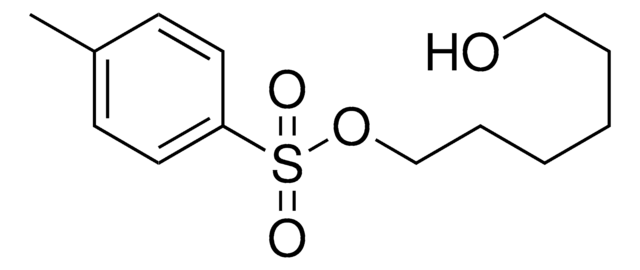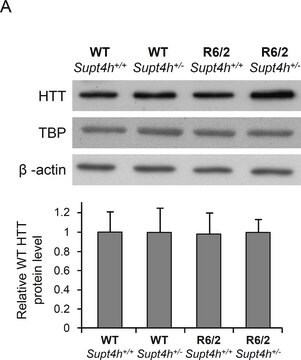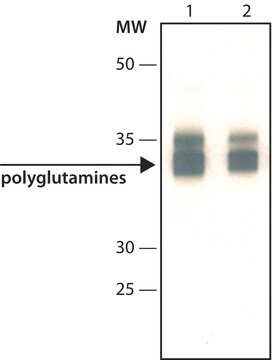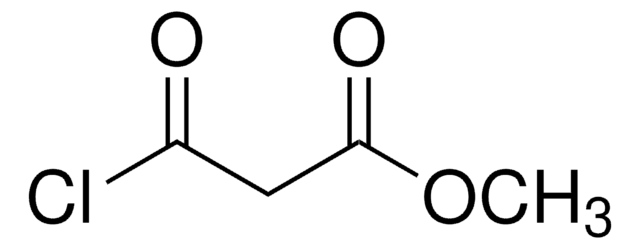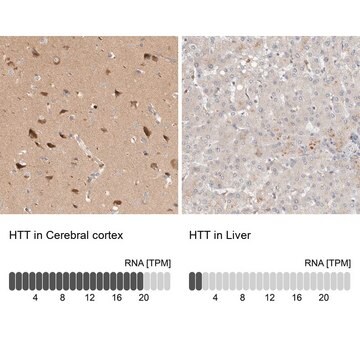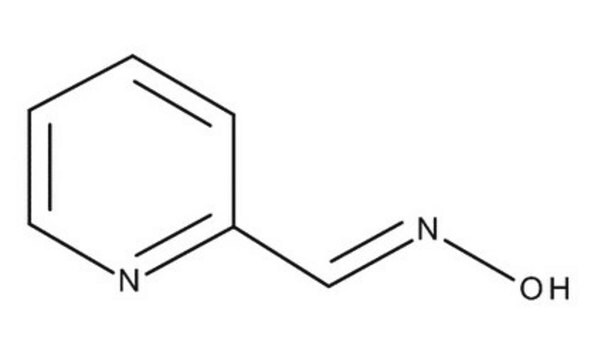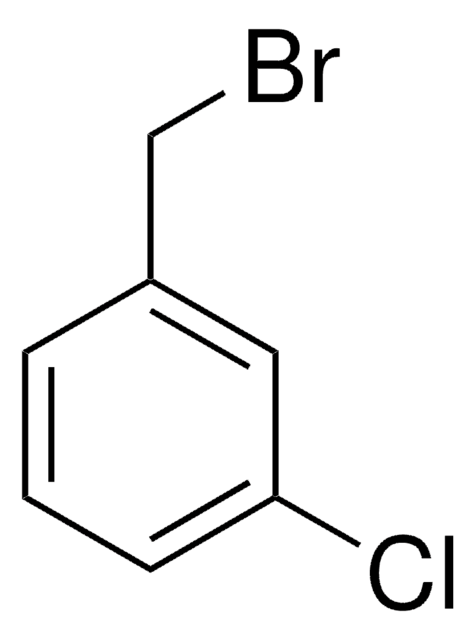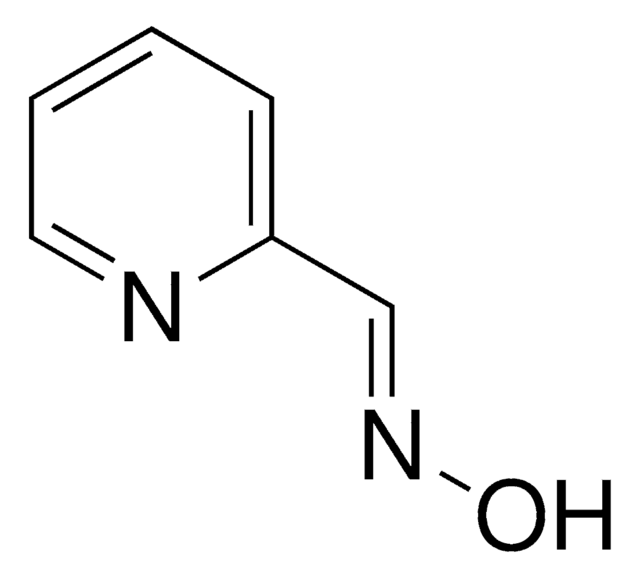SAB1403910
Anti-Huntingtin Disease (HD/HTT) Antibody
mouse monoclonal, 3F1
Synonym(s):
HD, IT15
About This Item
Recommended Products
Product Name
Monoclonal Anti-HD antibody produced in mouse, clone 3F1, purified immunoglobulin, buffered aqueous solution
biological source
mouse
Quality Level
conjugate
unconjugated
antibody form
purified immunoglobulin
antibody product type
primary antibodies
clone
3F1, monoclonal
form
buffered aqueous solution
mol wt
antigen ~38.21 kDa
species reactivity
human
technique(s)
capture ELISA: suitable
immunohistochemistry (formalin-fixed, paraffin-embedded sections): suitable
indirect ELISA: suitable
western blot: 1-5 μg/mL
isotype
IgG2aκ
NCBI accession no.
UniProt accession no.
shipped in
dry ice
storage temp.
−20°C
target post-translational modification
unmodified
Gene Information
human ... HTT(3064)
Immunogen
Sequence
AVAEEPLHRPKKELSATKKDRVNHCLTICENIVAQSVRNSPEFQKLLGIAMELFLLCSDDAESDVRMVADECLNKVIKALMDSNLPRLQLELYKEIKKNGAPRSLRAALW
Physical form
Not finding the right product?
Try our Product Selector Tool.
recommended
Storage Class Code
10 - Combustible liquids
WGK
WGK 1
Flash Point(F)
Not applicable
Flash Point(C)
Not applicable
Choose from one of the most recent versions:
Certificates of Analysis (COA)
Don't see the Right Version?
If you require a particular version, you can look up a specific certificate by the Lot or Batch number.
Already Own This Product?
Find documentation for the products that you have recently purchased in the Document Library.
Our team of scientists has experience in all areas of research including Life Science, Material Science, Chemical Synthesis, Chromatography, Analytical and many others.
Contact Technical Service